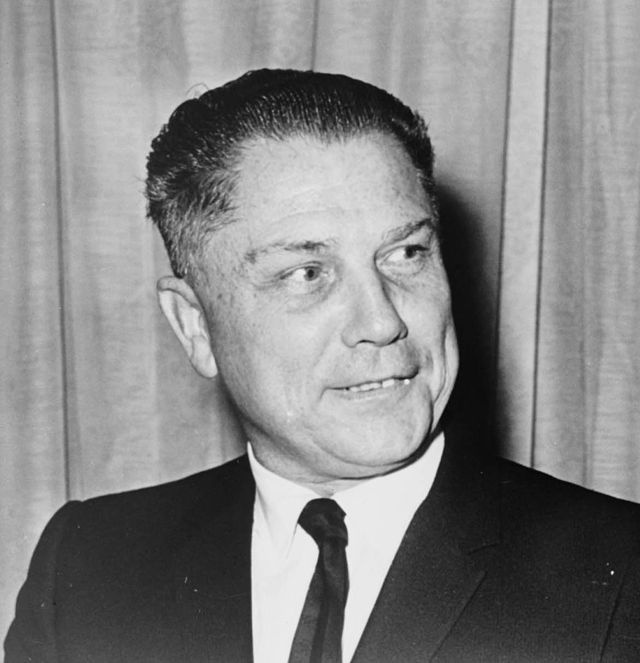“Union boss” has always been a bit of a…weird term to me. Not only because it evokes an image of a corrupt blue (or pink) collar worker, who has unyielding power over the workplace, but it also feels a bit ambiguous. This makes little sense, because while unions advocate on behalf of workers, ultimately it is still employers who hold a majority of the power. Maybe it’s because I have my extreme biases towards unions, and the labor movement as a whole (my aunt who raised me was a union attorney for most of her career), but seriously, what is a union boss? Is it the president of a local chapter of a labor union? Is it the head of the national union? Is it a major organizer in labor rights? It is very hard to define when you think about it. Yet, outlets like CNN, the (Murdoch-owned) New York Post, the (also Murdoch-owned) Wall Street Journal, The Independent, and others will uncritically refer to union leaders as “union bosses.” Why is that?
The media is largely to blame for the overuse of the term. From the 1930s, the media tacitly connected the labor rights movement to organized crime. In fact, the earliest usage of the term “union boss” was the Chicago Tribune running a story about Al Capone confidant Jack “Three-Fingers” White, whom the paper identified as a union boss. You see this in other instances such as the coverage of the Jimmy Hoffa investigation. Associating unionized workers with criminal syndicates has helped further the myth of the union boss.
Yes, we cannot ignore the elephant in the room. It has been well-documented that some labor unions had some historical connection to organized crime. In fact, in the case of Jimmy Hoffa, you cannot decouple his position as president of the International Brotherhood of Teamsters from his ties to organized crime. However, what is not pointed out enough is that mobsters infiltrated organized labor through fear and intimidation. And since the prosecutions of various mob- affiliated union heads, the Mafia simply does not exert the same amount of influence in labor unions anymore. The Wall Street Journal pointed out nearly a decade ago that after five of the largest crime families in New York City were prosecuted, unions under their control were able to reform and become the mediums of strong labor rights they are today. Current Teamsters president Sean O’Brien went on record last year to say that “there’s no organized crime presence” in the union once led by Hoffa. “If there is any type of corruption,” he added, “we deal with it swiftly and take appropriate action.”
And, to pick a random real estate executive out of the hat… how often is Donald Trump defined by his considerable historic ties to organized crime? There hasn’t been any turnover at the head of the Trump family business – it’s still effectively run by the Donald himself… who, again, had clear mob ties. Which are not echoed in random Wall Street Journal articles in 2023, despite the fact Trump has actually been indicted under RICO, i.e., for organized crime that led to dramatic violence.
So… current union leaders, unlike the Republican frontrunner for president, do not have close mob ties. And, unlike corporate bosses… unions are democracies in which the putative “bosses” are elected by their peers in a one person, one vote manner, which… isn’t how CEOs (i.e., actual bosses) are typically selected.
Unions have long been at the forefront of progress in the United States, strengthening worker power, increasing wages, and reducing inequality. According to the Economic Policy Institute, median household incomes in states with high union density are more than $12,000 higher, on average, than median incomes in low-union-density states. Unions have also worked to ensure that women and people of color are treated fairly in the workplace. EPI has found that unionized Black women are paid 94.9% of what their Black male counterparts make, while non-unionized Black women take home just 91%. While there should be equal pay for equal work, these data indicate that unions are vehicles of equity. What’s more is that a 2012 study showed that union membership is instrumental in reducing Black-white wage gaps. In addition, collective bargaining agreements can prevent LGBTQIA+ people from being discriminated against at work, and immigrant workers also benefit from protections afforded by unions.
We must retire the “union boss” from our vocabulary. Yes, it does connect to some history of corruption, but it is outdated, irresponsible, and most importantly irrelevant. All it does is stigmatize unions and make it harder for workers to have their basic needs met.
Journalists, regardless of what your (actual) boss is telling you – stop calling union leaders “bosses.”

